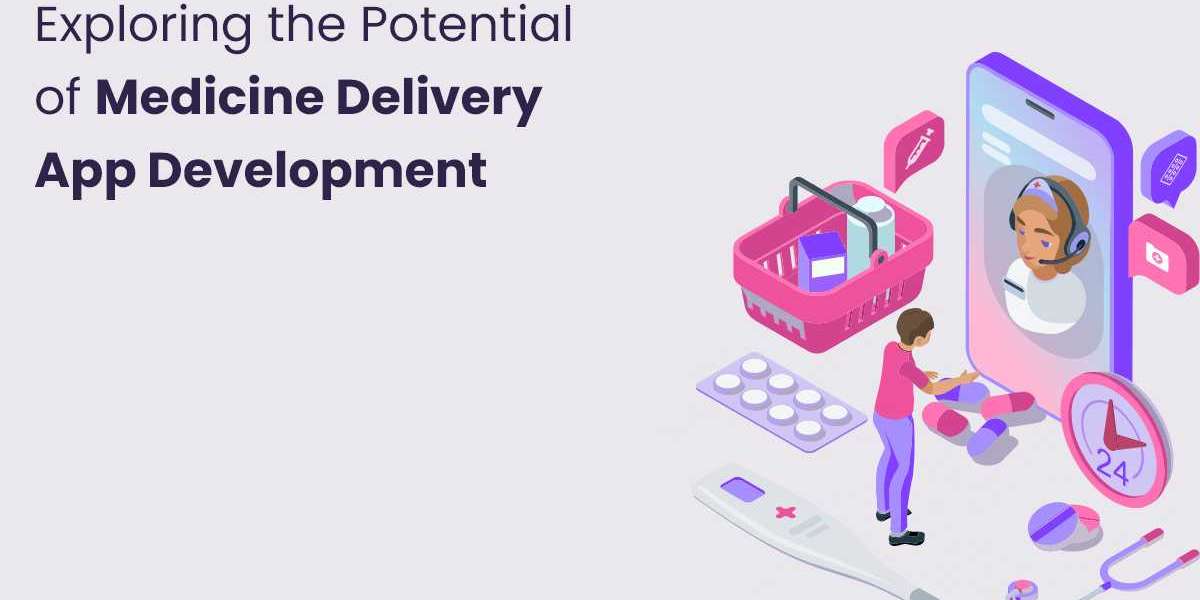In the era of digital transformation, the healthcare industry is undergoing a significant paradigm shift, driven by technological innovations that aim to enhance accessibility, efficiency, and patient outcomes. One such innovation that has gained considerable traction in recent years is medicine delivery app development. These apps, designed to facilitate the seamless delivery of prescribed medications to patients' doorsteps, hold immense potential to revolutionize the way healthcare services are accessed and delivered. Let's delve into the potential of medicine delivery app development and the myriad benefits it offers to patients, healthcare providers, and the healthcare ecosystem as a whole.
Addressing Healthcare Accessibility Challenges
One of the primary advantages of medicine delivery apps is their ability to address the accessibility challenges faced by patients, particularly those living in remote or underserved areas. For individuals with limited mobility, transportation barriers, or chronic health conditions, accessing necessary medications can be a daunting task. Medicine delivery apps bridge this gap by offering a convenient and reliable means of obtaining prescriptions without the need for physical visits to the pharmacy. By leveraging the power of technology and logistics, these apps ensure that patients have timely access to their medications, regardless of their geographical location.
Enhancing Medication Adherence and Patient Engagement
Poor medication adherence is a pervasive issue in healthcare, leading to suboptimal treatment outcomes, increased healthcare costs, and preventable complications. Medicine delivery apps play a crucial role in improving medication adherence by providing patients with convenient tools to manage their prescriptions effectively. Features such as medication reminders, refill notifications, and dosage tracking empower patients to stay on track with their treatment regimens and avoid missed doses. Additionally, these apps foster greater patient engagement by offering educational resources, medication information, and personalized support, thereby empowering patients to take an active role in their healthcare journey.
Streamlining Prescription Management and Fulfillment
Traditional methods of prescription management and fulfillment are often plagued by inefficiencies, delays, and administrative burdens. Medicine delivery apps streamline this process by digitizing prescription orders, enabling electronic prescribing, and facilitating seamless communication between patients, healthcare providers, and pharmacies. Through intuitive user interfaces and automated refill options, these apps simplify the prescription refill process, ensuring that patients receive their medications promptly and without hassle. By optimizing prescription management and fulfillment, medicine delivery apps enhance operational efficiency for pharmacies and healthcare providers while improving the overall patient experience.
Leveraging Technology for Personalized Healthcare
Advancements in technology, such as artificial intelligence (AI) and machine learning, are revolutionizing personalized healthcare delivery. Medicine delivery apps leverage these technologies to analyze patient data, preferences, and medical history, enabling personalized medication recommendations, dosage adjustments, and treatment plans. AI-powered algorithms can identify potential drug interactions, allergy warnings, and dosage optimizations tailored to each patient's unique needs. By harnessing the power of technology for personalized healthcare, medicine delivery apps optimize treatment outcomes and enhance patient safety and satisfaction.
Ensuring Security and Compliance
With the increasing digitization of healthcare services, ensuring the security and privacy of patient data is paramount. Medicine delivery apps adhere to stringent security standards and compliance regulations, such as the Health Insurance Portability and Accountability Act (HIPAA) in the United States, to safeguard sensitive medical information. Robust encryption protocols, secure authentication mechanisms, and strict access controls are implemented to protect patient confidentiality and prevent unauthorized access or data breaches. By prioritizing security and compliance, medicine delivery apps instill trust and confidence in patients and healthcare providers alike.
Conclusion
Medicine delivery app development represents a paradigm shift in the healthcare industry, offering transformative benefits for patients, healthcare providers, and the broader healthcare ecosystem. By addressing accessibility challenges, enhancing medication adherence and patient engagement, streamlining prescription management, leveraging technology for personalized healthcare, and ensuring security and compliance, these apps are poised to revolutionize the way medications are accessed, prescribed, and delivered. As technology continues to evolve and healthcare delivery models evolve, the potential of medicine delivery app development to improve patient outcomes and enhance the efficiency of healthcare services remains limitless.








